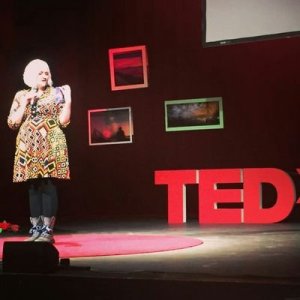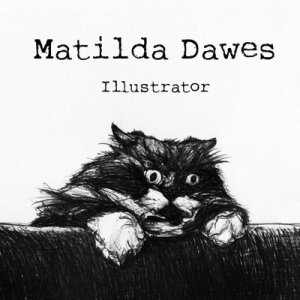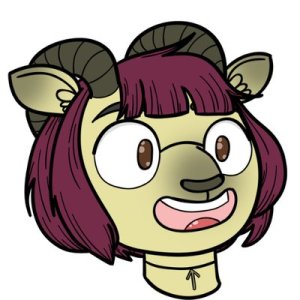On Saturday 26th August we were lucky enough to be invited to London Super Comic Con to put on a S.M.A.S.H. event on the topic of “Identity.”
We were also lucky enough to have our panel be composed of several beautiful and talented people:
F. D. Lee (The Pathways Tree) @faithdlee
Sarah Millman (Heart of Time) @Heart_of_Time
Mazin Saleem (Strange Horizons) @maybemazin
Matilda Dawes (University of Westminster) @matilda_dawes
Before the day of the panel we sent them an email asking the following questions:
How does reading comics help us create a sense of identity?
How do positive and negative depictions of people like us affect how we think and feel?
Is it possible for us to understand and empathise with characters who aren’t like us?
In what ways is the concept of “identity” helpful and in what ways is it unhelpful?h to be read at the start of the panel. After it was over we asked for their permission to share their pitches on here for everyone to see and they all very kindly said yes.
Read their responses below, or listen to the audio recording here.
I think this is a really important question. Reading comics – like all reading – helps us gain a sense of who we are and where we might fit into the world. There’s been some studies that have argued that our propensity for fiction is actually an evolutionary device, as it allows us to gain knowledge and experience is a ‘safe’ way, and one that is memorable and easily transmitted. Part of that experience if how to be ‘us’, what kinds of people we can be. We can meet people outside of our own cultures and circles through comics, and this can influence us, what we think is right and wrong, funny, kind, cruel and so on. Also, I think with comics there is a wider participatory culture that is very important. For me, being a fan of comics and geek things has helped me to feel part of a community. Of course, there can be negatives to this, especially when the community turns hostile to outsiders; the recent Marvel milkshake photo being one example of that. Still, in terms of creating a sense of identity, I think comics can offer something really unique, due to the medium and also to the variety of books, people and experiences on offer.
We learn through fiction, and part of what we learn is how to be ourselves. So if we see or are exposed to repeated depictions of people like us, positive or negative, that can colour the way we approach situations or the way we expect to get treated. If that depiction is picked up in the wider culture, it can very much influence how we are treated. Fiction is hugely powerful. Comics especially, because of the mixture of text and imagery, are very direct forms of communication – we pick up so much more from a comic than just the text, the way the image is framed, the way the panels move, all help to give an idea of how ‘we’ are being treated and received by the world within the book. Representation then is very important. Comics are doing really great stuff in this – the big names and indie comics are branching out and showing different races, genders, sexualities. And thanks to the net and things like Comixology its easier for us to access different representations and stories. I think the more variety we’re exposed to, the more likely we are to be happier in our skins and accepting of others.
This is very connected with my previous thought. Empathy is so important, and we can learn that from comics. When we meet someone who is so very different from us, that lives in a world that contrasts out own… but we realise they have the same thoughts and feelings, the same drives and fears, that can help us be more understanding of others. Empathy is something which we have naturally – again, its another evolutionary survival instinct – and our brains are attuned to it. We can anthropomorphize characters and see them as being as real as any person we’ve met in real life. This is why comics that show different types of people, Kamal Khan or Faith or Sera, is so important.
Actually, I don’t find it very helpful. I think the common conception is that our identities are fixed in childhood, but studies have shown this isn’t that case at all. Also, I think we have this idea that our identity is one thing, when in fact identity is performative and fluid. For example, when I’m asked about this at conferences I ask, “Who are you when you argue with your partner? And what about when you argue with your boss, or a police officer, or a customer?” We change our performance of our identity to fit the situation (again, a skill we can practice via fiction). I think if people were more accepting of multiple and fluid identities, we could have a lot more empathy and understanding in the world. It makes thing easier! You can be character X today, because you have a big interview or a date. Of course, there are negatives to this. People can hide harmful identities. But generally, I think we would do better to move away from the notice of fixed identity.
Identity is the crux of a character. Their identity within the story but also your identity as the reader. If the two don’t connect on any level, even that of purely disliking the character for their short-comings, then the story cannot sustain any depth. Relating your own identity to that of a character in a comic is not as straight forward as they look like me or are in the same profession as me so I relate to them. The subtleties in how a character is presented, the way they move, bad habits, nervous ticks, facial expressions, back-story, these are the things you as the reader pick-up on and respond to emotionally and mentally. As an artist I love building and shaping characters, trying to figure out their personal mannerisms and quirks that help communicate their personality, because these are the things that the audience can identify with and enable a personal connection to a comic.
The impact comics can have once you have connected to the characters or storyline can be significant. So much so that I would argue a comic can contribute to the development of your own identity. For example if you are a blonde white female such as myself, you may start to think you are supposed to be skinny, big-breasted and at times a bit slow to catch-on. That is, if you go by the stereotype representation you would appear to fall under. But as with many of us we do not find what we relate to in such a literal, direct way within comics. Instead we can pick and choose who and what carries meaning for us, what makes us feel like a small part of our story or ourselves is being told. I think this is where the reader finds a sense of identity in the world of comics, when an aspect of themselves or what they wish to be is expressed though the narrative or visuals.
How I think this affinity can differ from film or animation is that the static nature of a comic requires the reader to use their imagination to fill in the gaps, carrying from one action to another, one segment to the next. Thereby personalising their experience. Their imagination may not be required as much as it would be for a novel, however therein lies the magic of comics, visualising text is not instinctive for everyone, yet everyone can share the same vision with a comic whilst having their own personal experience of what it means to them.
With the increase of Dungeons and Dragons and RPG influenced comics in the past few years, it’s interesting to compare and contrast how a player talks about their role-playing character. When is it, “he does this”, and when does this switch to, “I do this”? There is a definite value placed on playing games “to character” and not how you, personally, would respond – and this is also particularly important in interactive digital media and games. As a creator, how will my player react to this? Will they understand that this character is not them, and how do we communicate their identity without it feeling forced? An incredibly easy way to guarantee audience investment is to encourage interactivity and creativity within the worlds you construct – what Hogwarts house are you in? Would you be a jedi, or a sith?
Comics are, obviously, visual. But they’re not interactive. A character is placed before the reader, for them to dissect and digest – not necessarily change. I would argue that comics are even less interactive than books, where the world of words is built visually in the mind of the reader. How many times have you heard the complaint, “oh, but this character is not how I imagined them in my mind” when it comes to film adaptations? Comics are more descriptive, and, in terms of audience interaction, prohibitive. A comic reader digests, immerses, invests – but doesn’t influence.
As audiences become more and more used to interactivity in what they consume, the lack of ability to change what they see and react to becomes jarring. A reader approaches a comic as themselves, and, if what they’re reading doesn’t ring true, responds: “this character is not behaving in a way I would behave, and yet we’re supposed to be similar. If I made this, I would do this differently.”
A creator should be held accountable for something badly (or even offensively) made, and critique is invaluable. It’s also debatable whether or not comics should encourage more audience investment and become more interactive, and the ways in which creators could do this.
Regardless, it’s incredibly important that comics are recognized as a point of view, as personal, and as idiosyncratic. Reading a comic is always, essentially, a voyeuristic exercise: always “they do this” rather than “I do this”.
Identities are somewhere halfway between Russian dolls and Venn diagrams, which is why it’s still possible for someone like me who’s never read a comic about or by a British Pakistani guy to not feel alienated from the form. But I’d argue this fact is more crucially because what we respond to in comics, as with all narrative art, is a combination of two elements.
Art can make you remember. And art can make you see. Or to put it in stand-up comedy terms, ‘Don’t you just hate it when?…’ versus ‘Isn’t it funny how’? Whether a reader will identify with a comic is therefore two-fold. The easiest fold for a creator is making the reader remember, i.e. getting them to recognise something – my adolescence was like Fun Home, too! – and this is where a lot of the contentiousness about identity in art comes: because either the creator is asking you to remember an experience of theirs, or from their POV, as if it’s some universal, when in fact it’s merely the dominant in the guise of the default. Or the creator is asking the reader to remember something, is re-presenting something, that does not chime with how the reader knows or remembers it, so the reader feels a falseness, if not annoyance at the attempt.
But the harder work of comics is actually on the other level. Not getting the reader to remember but to see. For that, a creator has to go beyond your experience, your memory, what you’re familiar with, what you know. Please note that seeing is NOT the same as experiencing novelty. Instead, when a comic gets you to really see something, it’s like a novel memory, “I never thought of that till now but know it must be like that”. A strange example but half of the horror of a manga like Uzumaki which for me contained things I have no memory of, thank god, was that it had an accompanying sense of ‘But of course.’
There used to be an old and now probably quite stale sounding concept, that art was about the universal in the specific, and the specific in the universal. I know we all know there is ‘no such thing as the universal’, no POV outside of your identity. But in which case there’s no such thing as the specific either. No story, no venn diagram or nesting doll is complicated enough to capture the granularity of You.
The space between the identical and the universal is where you and art can be free. Although some comics will rely merely on making you recognise something from your own experience, and some others will chauvinistically portray experiences that few remember because the experiences just aren’t like that, the best comics will make you see. With them, your identity is not being corroborated. Your artistic sense identifies with the creator’s artistic sense: Isn’t it funny how?… Why yes. yes it is.




[…] S.M.A.S.H. LSCC COMIC CON / 2017 / Pitches […]
LikeLike
[…] S.M.A.S.H. LSCC COMIC CON / 2017 / Pitches […]
LikeLike
[…] Read the original pitches here. […]
LikeLike